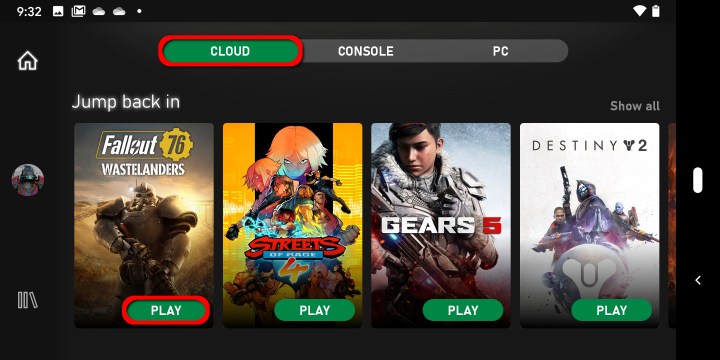A recent survey on Windows Central polled readers on their pre-order plans for Halo Infinite. Out of nearly 300 responses, two-thirds said they didn’t plan to pre-order the game. However, nearly half the respondents said that they planned to play the game on Xbox Game Pass, and multiple respondents who pre-ordered the game said they planned to play it on Game Pass, too.
Game Pass is helping lead the charge to kill pre-orders. Although that may not be a good thing for retailers and publishers, it’s great for gamers — especially as more titles ship in broken states after suffering delays. Although pre-orders will inevitably stick around for a while, they’re becoming obsolete, and Game Pass is a driving force behind that.
Pre-orders are bad for the people who matter

I don’t want to disparage the role retailers play in game sales. All told, retailers have played a critical part in preserving physical video games in this mostly digital era. However, pre-orders only benefit retailers and publishers, not players. And as someone who’s been bitten by pre-order issues more than once, I will always side with the players.
Ever since the Xbox 360 and PlayStation 3, retailers and publishers have found new ways to incentivize pre-orders. In most cases, that comes in the form of an extra skin or some other cosmetic pre-order bonus. Now, with digital sales easier than ever on recent hardware, some publishers have resorted to offering early access to games (take the recent Persona 5 Strikers or upcoming Battlefield 2042, for example).
Instead of rewarding good video games, the pre-order system rewards good marketing. Last year, it was Cyberpunk 2077, but there are dozens of other examples of broken games that took advantage of large pre-order numbers. Once the pre-order is secured, it doesn’t really matter how the game ships. You’ve spent the money, and that’s what matters to retailers and publishers.
The pre-order system is already antiquated and obsolete, but players are still willing to put down money on hotly anticipated games. With a program like Game Pass, players don’t need to worry about that. It works alongside the marketing hype, not as a means to exploit it. Game Pass helps players judge games as they are, not as they could be. And it reaches beyond just Xbox.
Game Pass is bigger than Xbox

Although Game Pass on Xbox is the best version, the program is much larger than a single console. It works on PC, too, and Microsoft now offers console-free gaming through cloud streaming. Although we aren’t getting Game Pass on Switch or PlayStation 5, the program still covers two major platforms for playing video games, as well as a quickly emerging one.
I’m mainly a PC gamer, and Game Pass for PC has saved my pre-order dollars more than once. I planned on pre-ordering Outriders ahead of launch, but I waited after hearing that it was launching on Game Pass. The ended up being a good call; the game launched in a broken state that made online co-op nearly impossible.
Similarly, 12 Minutes was one of my most anticipated games of 2021, but I found it tedious and unimaginative after a few hours of playing (though our own Otto Kratky would disagree). This point isn’t to sing the praise of Game Pass, but rather to show the benefits of a pre-order-free way to play games.
I would have pre-ordered both of those games and been disappointed. Game Pass is the only platform doing day-one releases at the moment, but a world where gamers can move beyond pre-orders is good for everyone. Game Pass is already on Xbox, PC, and mobile, and there remains a power vacuum on Switch and PlayStation 5.
Halo Infinite is a sign of the times

Getting back to Halo Infinite, it’s hard to ignore the elephant in the room — the disastrous campaign demo from 2020. Although half of survey respondents said they planned to play on Game Pass, there are likely some people who saw the messy state of the game last year and decided it just wasn’t for them.
Imagine now if Microsoft showed off an “in-engine” demo with all the sliders cranked to max and a neat vertical slice that only showed the game’s best qualities. In this darkest scenario, Halo Infinite would already be on store shelves, pre-orders would likely have gone through the roof, and players would be left disappointed.
This exercise shows how games are marketed and released in 2021. Marketing hype plays a critical role in selling the experience before games launch, and even the slightest sign that a game isn’t finished is enough to turn players away. From the Watch Dogs E3 demo to the countless Cyberpunk 2077 showcases, game publishers have set a bar that they can’t feasibly meet.
Game Pass — and hopefully future programs like it — removes that process from the equation. It doesn’t eliminate the marketing hype around video games, but it helps rein in how that marketing translates into sales, especially ahead of launch.
More to come

Pre-orders aren’t dead — and they likely won’t be for many years. There’s value in picking up a Steelbook for a game you’re looking forward to or securing an extra skin that only a small group can access. And for big budget first-party games on the Sony side of things, pre-orders are usually a safe bet.
Third-party releases and first-party titles that have yet to prove themselves are a different matter. Microsoft is tackling that issue head-on with Game Pass. Hopefully, others will join before too long.



